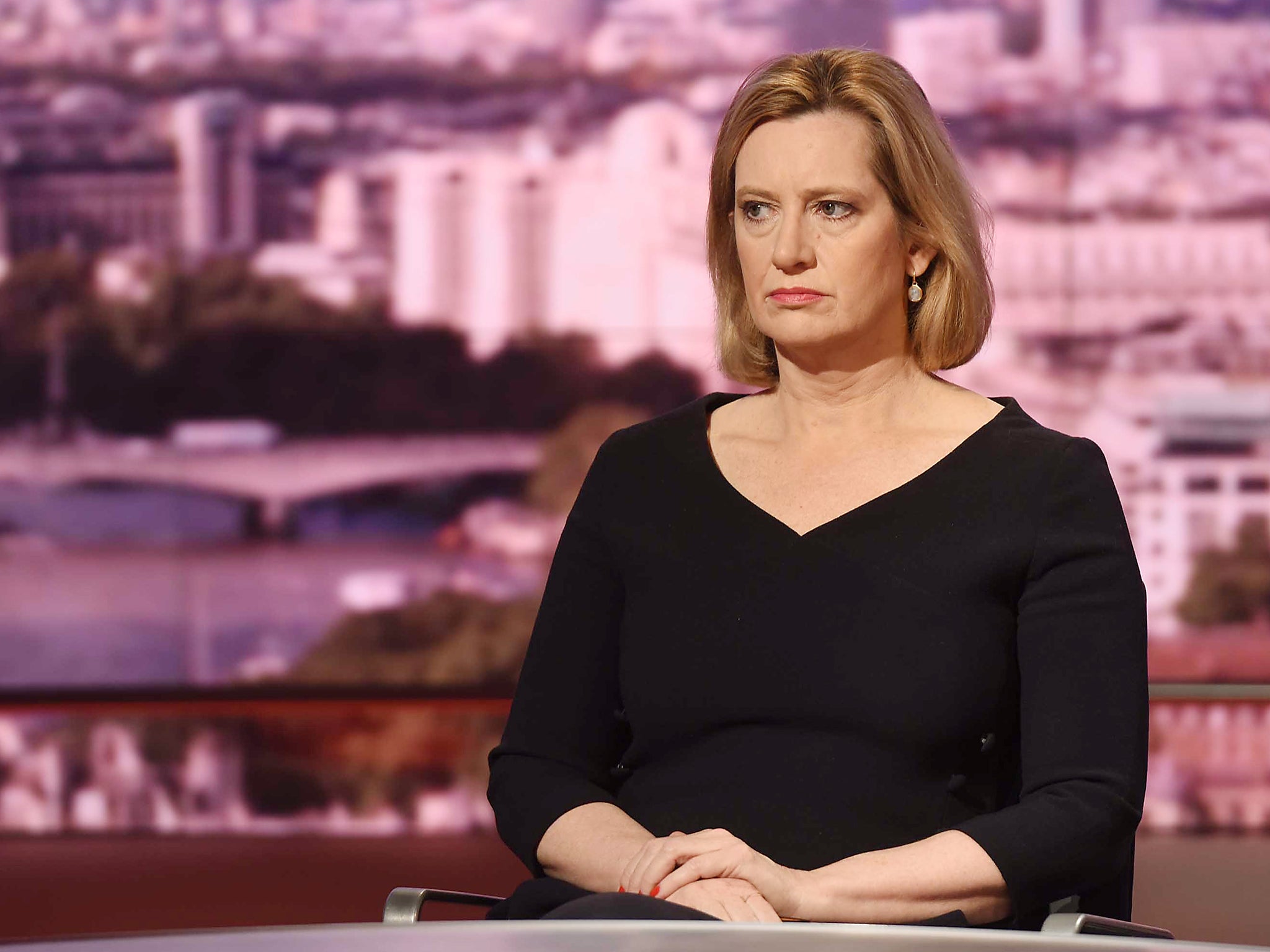Manchester attack: Home Secretary forced to defend using new anti-terror power just once
Amber Rudd said yesterday that new temporary exclusion orders had "started to come into use" but it has now emerged they have been used only once

Your support helps us to tell the story
From reproductive rights to climate change to Big Tech, The Independent is on the ground when the story is developing. Whether it's investigating the financials of Elon Musk's pro-Trump PAC or producing our latest documentary, 'The A Word', which shines a light on the American women fighting for reproductive rights, we know how important it is to parse out the facts from the messaging.
At such a critical moment in US history, we need reporters on the ground. Your donation allows us to keep sending journalists to speak to both sides of the story.
The Independent is trusted by Americans across the entire political spectrum. And unlike many other quality news outlets, we choose not to lock Americans out of our reporting and analysis with paywalls. We believe quality journalism should be available to everyone, paid for by those who can afford it.
Your support makes all the difference.New powers introduced in 2015 to prevent potentially radicalised British born jihadis from returning to the UK have been deployed just once, the Home Secretary has confirmed.
Asked if reports that the new “temporary exclusion orders” had been used on just on occasion, Ms Rudd told the BBC’s Today Programme: “That doesn’t mean they’re not of value to the police.
“They are a tool which law enforcement wanted, and they’ve just started to use them.
“The numbers may be small but it only takes one to do the kind of damage we saw last week. So let’s not start to undermine the importance of them.”
Temporary exclusion orders allow security officials to ban British citizens suspected of fighting abroad from returning to the UK for up to two years, or forced to agree to reporting to police or taking part in a deradicalisation programme.
The sole subject of a TEO is understood to be a British citizen who has fought for Isis abroad.
On Sunday morning, Ms Rudd had been question by the BBC’s Andrew Marr Show about the most recent data on the use of TEOs, dated from February, which showed that none had been used. Ms Rudd said they had “started to come into use” but would not comment on how many.
A report in The Times this morning said that only one had been used. Four or five others are said to be under consideration. Seven suspected jihadists are also living in the UK subject to severe restrictions on their movement introduced under the Terrorism Prevention and Investigation Measures Act in 2011, which are known as TPIMs.
Asked if their severely limited use meant that TEOs were "not fit for purpose" the Home Secretary said: "It’s wrong to conclude that. We have the tool there so the security service can use them.
"If you look at how people are radicalised, the key way is often that they are in their own country, [through] the false lies spouting by daesh to radicalise young people."
Ms Rudd added: "It is clear that we are at risk. We went up last week to the threat level of critical. But since 2014 we have been at a level of severe. We are living in a time when terrorists are determined to do us damage. We have never understated the danger we are in.
"The security services have foiled eighteen plots since 2013. But we have to level with people that there are terrorists who want to do us damage."
Join our commenting forum
Join thought-provoking conversations, follow other Independent readers and see their replies
Comments